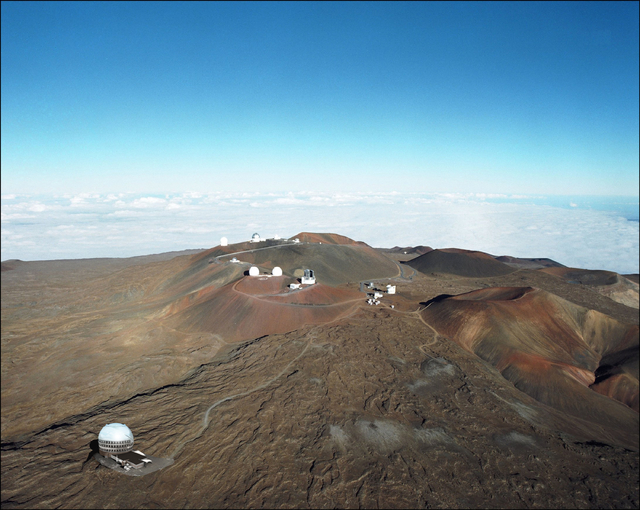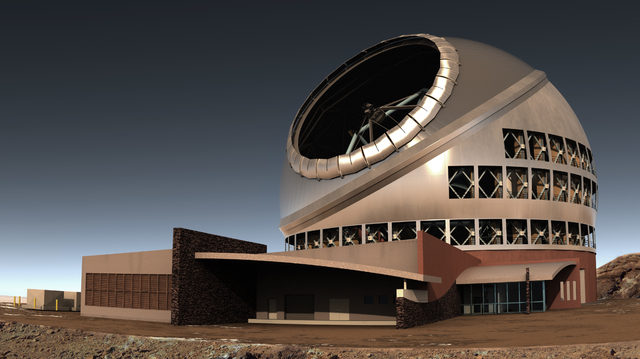Gov. David Ige announced Tuesday that the nonprofit corporation behind the Thirty Meter Telescope atop Mauna Kea agreed to his request for a weeklong halt of construction. ADVERTISING Gov. David Ige announced Tuesday that the nonprofit corporation behind the Thirty
Gov. David Ige announced Tuesday that the nonprofit corporation behind the Thirty Meter Telescope atop Mauna Kea agreed to his request for a weeklong halt of construction.
The stand down came in the midst of the annual Merrie Monarch Festival in Hilo and five days after law enforcement officials arrested 31 people who participated in an ongoing protest of the $1.4 billion project.
Ige said in a statement that the stand down would allow time for him to “evaluate the situation from multiple perspectives.”
“Mahalo to TMT for its willingness to pause its activities during this time,” Ige said in a statement. “I also thank UH President (David) Lassner and Office of Hawaiian Affairs Chair (Robert) Lindsey for their leadership on this issue. I will continue to work with them in the coming days.”
The announcement came at a press conference in Honolulu, during which Ige also made public his nominees to lead the Department of Land and Natural Resources and the Board of Education.
The governor’s office declined to address the Tribune-Herald’s questions about whether the Merrie Monarch Festival, which kicked off Sunday and draws thousands of visitors from around the world to Hilo, factored into Ige’s request. The festival is a celebration of Hawaiian culture, and many of the participants and attendees are Native Hawaiian.
TMT Project Manager Gary Sanders said in a statement that TMT agrees with Ige’s request for a pause this week and an ongoing dialogue on issues. He also addressed what TMT described as “several factually incorrect statements in the press about these issues.”
“The TMT site was selected with great care and respect,” Sanders said. “There are no archaeological shrines or burial sites within TMT’s project site. Comprehensive research by expert hydrologists confirm there is no threat to the aquifer.”
Gordon Squires, a TMT spokesman, said the request for a timeout came from the governor and that he could not speak to Ige’s motivations or whether it had anything to do with Merrie Monarch.
“In any case, TMT supports an ongoing dialogue on issues, continuing a dialogue that has been ongoing for many years, and agrees to the governor’s ‘timeout’ request,” Squires wrote in an email.
Construction of the telescope has been met with resistance from protesters who twice have staged roadblocks on Mauna Kea Access Road to prevent crews from proceeding with site clearing.
TMT protesters, who call themselves protectors, say they are opposed to additional telescope construction on Mauna Kea, considered sacred by Native Hawaiians.
Kealoha Pisciotta, a TMT opponent and protest organizer, applauded Ige for taking action, calling it clear evidence that he recognizes the worldwide groundswell of public support for “halting further desecration of the sacred mountain,” but said one week is not enough.
“We’re grateful for the governor’s action, but this welcome pause does not mean we’re standing down from our vigil of protection, during which so many people have had an opportunity to experience first-hand and from afar the deepest meanings of aloha and the power of peaceful expressions of protest against injustice and environmental disregard,” she wrote. “Many Hawaiians participating in the Merrie Monarch Festival are coming up the mountain with pain in their hearts, so our continued presence for them is essential.”
The 180-foot-tall observatory, expected to be operational in 2024, will be located on Mauna Kea’s north flank, just below the summit, at 13,150 feet. It will be the 14th telescope on the mountain and more advanced than any existing optical observatory.
Astronomers say it will allow them to observe the first stars and galaxies formed after the Big Bang.
On Friday, OHA trustee Peter Apo called on Ige and the University of Hawaii to adopt a 30-day moratorium on construction in order to work out a solution everyone, Native Hawaiians and the scientific community can live with.
Email Chris D’Angelo at cdangelo@hawaiitribune-herald.com.




